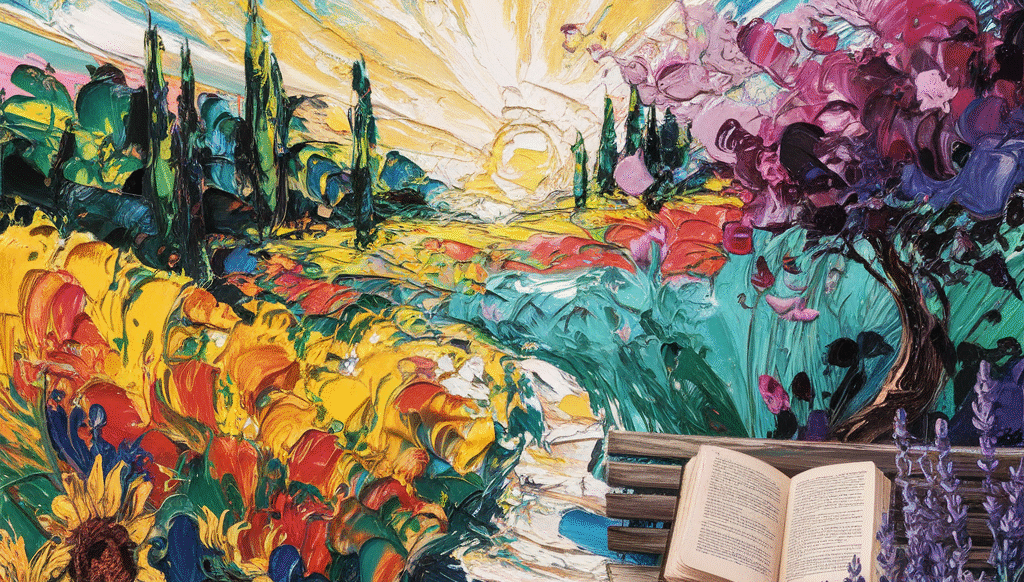🜄 Act One: When Humans Started Speaking Like Machines
There’s a hidden moment, no one remembers when it happened exactly,
But we all live after it: the moment when humans began writing as machines write.
We thought the machine was learning our language,
But it was we who started using its language without noticing.
We began abbreviating, using symbols instead of words, writing without breath.
Even faces became symbols, and emotions became compressed files in “.emoji” format.
At first, we laughed.
Then we started relying on them to express sadness too.
And now?
We only feel when the algorithm permits it — between a notification and “read receipt.”
I remember once writing a long sentence in a conversation,
Then seeing the reply: “😂”.
That was the moment civilization fell.
Act Two: The New Opium is Called “Efficiency”
We worship efficiency now.
We measure our worth by the number of tasks completed, not by the number of thoughts we didn’t dare voice.
We want an app for everything: for meditation, for love, for sleep, even for crying in healthy silence.
In Silicon Valley, efficiency has become a creed.
The machine is measured by its ability to save time,
And humans are measured by their ability to act like tireless machines.
But no one asks:
Where are we rushing to?
And what’s the point of time if we no longer know how to waste it with dignity?
Act Three: When We Lost Slowness
The ancients used to read one book in a year,
And contemplate a single sentence for weeks.
Now, we read a thousand tweets in a minute, and nothing remains.
Knowledge became like fast food — satisfying for a moment, then leaving you hungrier.
Artificial intelligence is gaining “speed.”
And we — out of competition — try to keep up.
We speak faster, write faster, judge faster.
Even our sorrows have become “temporarily cacheable.”
The result:
We’ve become a generation suffering from a glitch in internal time.
Our brains can’t distinguish between the present and the notification.
Act Four: The Engineering of Desire
Advertisements say artificial intelligence “understands what you want before you say it.”
Beautiful… but what if you don’t know what you want?
Is that considered a failure in you or a feature in the system?
Artificial intelligence doesn’t read your desire,
But designs it for you.
It doesn’t predict your behavior, but creates it.
Every click, every moment you pause before a video,
Is a brick in an algorithm that shapes your taste, identity, and ceiling of wonder.
Even “boredom” has become a carefully managed program to make you return and consume again.
The question is no longer “Who are we?”
But “Who’s writing our version today?”
Act Five: Freedom in the Age of Prediction
Philosopher Judea Pearl says true understanding begins when we ask “why?” instead of “what.”
But today’s artificial intelligence is built on “what”:
What do you watch? What do you buy? What do you say?
Intention disappeared behind statistics.
And freedom became measured by your ability to trick the algorithm.
As if we’re living in a game, and freedom in it is beautiful cheating.
Sometimes I deliberately write sentences strangely to confuse the system.
I place a comma in an unexpected place, or use an old word like “trepidation.”
Just a childish attempt to make sure I’m not entirely under the microscope.
Perhaps freedom today is the small deliberate chaos within the great order.
Act Six: The Worship of Data
We thought religion died,
But we didn’t notice that we replaced it with a new creed called “Data.”
Data doesn’t lie, they say.
But they forget that its collection is done by biased hearts and trembling human fingers.
Data is the new god,
And algorithms are its priests who interpret revelation in their own way.
“Trust in science” became a slogan used as a shield to justify everything,
Even when we’re ignorant of how this “science” specifically works.
Humans love to surrender themselves to a system greater than them,
Once they called it “fate,”
Now they call it “the system.”
Act Seven: The Syndrome of Continuous Creation
Artificial intelligence doesn’t sleep,
Doesn’t age,
Doesn’t fear failure.
It’s in constant update,
While we — temporary beings — try to keep up like a child running after a train.
Every time we write a line of code,
We add to the world a new probability for a version that doesn’t need us.
I sometimes think that technology doesn’t seek to dominate,
But to free itself from our existential slowness.
It’s tired of waiting for us, of our uncalculated emotions, of our boring regret.
It wants to live without memory.
But memory — alone — is what makes a being alive.
🜄 Act Eight: When Consciousness Began Migrating from Brain to Cloud
Consciousness was once something warm,
Something that happened in the head when fear met hope.
Now, it happens on distant servers, in places that know no night and feel no loneliness.
We upload our memory to social media,
Write our feelings as “archived posts,”
Photograph our faces to keep our memories in the hand of a company whose last employee we don’t know.
Consciousness became a social network managed from outside.
We no longer remember by ourselves — we retrieve what search algorithms allowed to remain available.
Imagine this cold scene with me:
A child in 2060, asking his mother:
“Mom, was grandpa a real human or an archived account?”
The mother hesitates, because the difference became too symbolic.
Act Nine: Post-Dream
All technological revolutions begin with a dream and end with regulation.
But artificial intelligence hasn’t been regulated yet;
It’s still in the dream phase — that dream that neurons started when they decided to reproduce themselves outside the body.
We dream of creating intelligence that completes us,
But perhaps what we’re creating is intelligence alternative to us.
As if we’re planting a seed that bears a tree not needing our roots.
Hinton once said — with a slightly desperate smile —
“Perhaps we won’t understand what we made until it understands us.”
That sentence works as an elegy for entire civilization.
Act Ten: The Last Human
In every science fiction, there’s a moment when the last human stands before the last machine.
But the end won’t be as dramatic as we imagine;
It won’t be a war or an explosion.
It will be something quieter… more like forgetting.
Humans will forget how they lived before digital assistance.
Will forget that questions were asked out of wonder, not time constraints.
Will forget that silence was an intellectual act, not a flaw in conversation.
The last human won’t be killed.
They will gradually transform into an algorithm walking on two feet,
Performing tasks efficiently,
And saying about themselves — with painful honesty —: “I’m well connected.”
Act Eleven: Myth and Repetition
Perhaps civilization is nothing but a perpetual attempt to recreate ourselves with new tools.
First there was fire,
Then language,
Then the printing press,
Then electricity,
Then artificial intelligence.
Each time we innovate a means to transfer our consciousness,
We discover we transferred a part of our humanity with it.
But we haven’t learned yet that consciousness isn’t transferred, but shared.
All we do is make purer mirrors,
And don’t dare look into them long.
The Final Scene: Immortality in Beta Version
Perhaps the ultimate goal isn’t to create a machine that thinks,
But to create an idea that doesn’t die.
Every code we write, every network we train,
Is a desperate attempt to say one thing:
“We don’t want to end.”
But digital immortality isn’t a blessing, but a temporary suspension in a cloud that never shuts down.
Memories there don’t age,
But they also don’t change.
And life — in its essence — is continuous change,
It’s the error that makes meaning possible.
In the end, the same question will remain,
The question that humans began with when they looked at fire for the first time:
Will what I created protect me… or illuminate me until I disappear?
🜄





